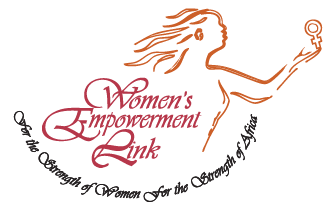Elimination of Violence Against Women & Girls
WEL facilitates the development, promotion and enforcement of appropriate mechanisms for prevention, protection and response to violence against women. Strategies include the use of Movement Building, Advocacy Campaigns, Education/ Awareness Raising, Strengthening Structures for Response to VAWG, Strengthening Referral Networks and Community Led Activism in Ending Violence Against Women and Girls.

Strengthening Community-based structures to prevent and respond to sexual and gender-based violence.
The project will strengthen structures that speak towards preventing and responding to sexual and gender-based violence in the community. To materialize the goal WEL uses various interventions at various community levels;At individual level and interpersonal level (Life skills and Women Economic Empowerment (WEE) to ensure Adolescent Girls and Women (AG&W) have improved skills for a healthy relationship, including communication skills, skills for coping with stress and managing emotions and increased agency to make decisions about their health related issues
Community level (SASA! FAITH) Wel uses the approach to ensure Communities have reduced social acceptance of gender inequality, Intimate Partner Violence (IPV) and sexual abuse of AG&W and adult women.Communities support AG&W and impose sanctions against violence At societal level ( legal frameworks, policies and institutional strengthening ) County governments enhanced ability to prevent and respond to VAWG including IPV and Rescue shelters have enhanced ability to provide quality and comprehensive services to survivors of GBV including IPV. This project is being implemented in partnership.

Community Security and Access to Police Services by Women
Programme on Improving Community Security and Access to Police Services by Women survivors of GBV. The programme is working with National Police Service (NPS) as an institution, to strengthen their response to Violence Against Women and Girls (VAWG) and promotion of respect of International Human Rights Standards by NPS by supporting the NPS in the development of Gender plans and Review NPS operational protocols and procedures

WEL in Partnership with Irish Aid
In partnership with Trocaire, WEL has also successfully adapted the use innovative approaches such as the SASA!Faith model in the implementation of its projects against Gender Based Violence (GBV). The SASA!Faith model is based on an established best practice model that was developed by Raising Voices in Uganda, and reduced cases of domestic violence by 50 % in Uganda. WEL has strengthened capacity of the women Self Help groups (SHGs), community members and county governments of Nakuru, Kisumu, Mombasa, Embu, Nairobi, Bungoma and Baringo to spearhead efforts to prevent and respond to domestic violence using the SASA!Faith methodology.
Through the programme, WEL has managed to work and link over 600 women and youthful survivors of GBV to access financial and non-financial services to support their economic empowerment. Our trainings to the GBV survivors mainly focuses on the individual and groups financial education skills and on small business management skills

Ending Child Marriage (CM), Child Trafficking (CT) and Commercial Sexual Exploitation (CSEC) Programme.
WEL is an implementing partner of Girls Advocacy Alliance (a global program and policy to end GBV and Economic Exclusion of adolescent girls and young women). Under this umbrella WEL brought together a network of national and regional CSOs working towards ending child marriage and adolescent girls and young women’s welfare by holding the national governments accountable to deliver on the commitments under the Maputo Protocol that was ratified by Kenya in 2010 to ensure that the right to health of women, including sexual and reproductive health is respected and promoted as well as the Abuja Declaration to commit at least 15% of the annual budget towards improving health care